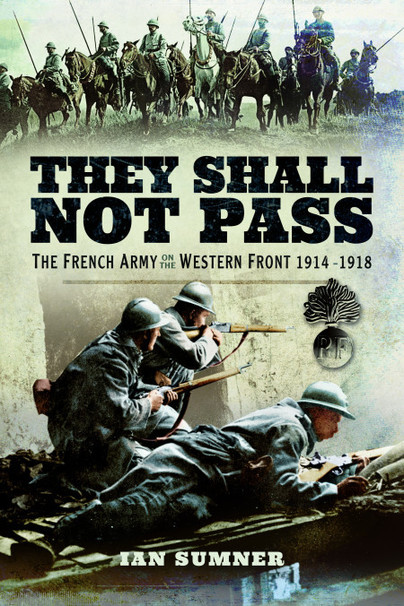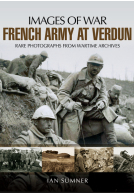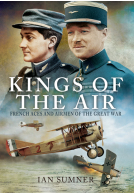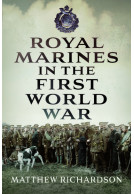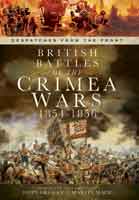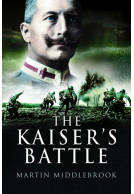They Shall Not Pass (Paperback)
The French Army on the Western Front 1914 - 1918
Imprint: Pen & Sword Military
Pages: 248
Illustrations: 30
ISBN: 9781526721822
Published: 6th November 2017
(click here for international delivery rates)
Need a currency converter? Check XE.com for live rates
| Other formats available | Price |
|---|---|
| They Shall Not Pass ePub (4.9 MB) Add to Basket | £6.99 |
This graphic collection of first-hand accounts sheds new light on the experiences of the French army during the Great War. It reveals in authentic detail the perceptions and emotions of soldiers and civilians who were caught up in the most destructive conflict the world had ever seen. Their testimony gives a striking insight into the mentality of the troops and their experience of combat, their emotional ties to their relatives at home, their opinions about their commanders and their fellow soldiers, the appalling conditions and dangers they endured, and their attitude to their German enemy. In their own words they offer a fascinating inside view of the massive life-and-death struggle that took place on the Western Front.
This is an excellent piece of work, giving the English language reader a vivid insight into the struggles of the French Army, something that is often difficult to find away from Verdun and the famous mutinies of 1917. A very good addition to the literature on the Western Front. As one might expect, it’s not the most cheerful of pieces, with plenty of accounts of how dreadful life was in the trenchs, but we also get quite a bit on what motivated the French soldiers to keep on fighting.
History of War
Read the full review here
As referenced in
Stand To! Journal of the Western Front Association
Overall, this is a very good book to have in so far as it provides a very good overall summary of the French experience of the war. Not only does the book important information on a different perspective of the war, it also gives an important overview of the role France played., and how it linked to that of Britain.
Jon Sandison - Freelance
As featured in
24seven Lifestyle Magazine, April 2018
Other than a handful of specialist books there is, generally speaking, a dearth of material on this topic in English. Sumner allows the French soldier – the Poilu – to tell the story in their own words, from letters, diaries, newspaper reports and accounts written during or shortly after the events they describe. What makes the book particularly noteworthy is that the vast majority of this material has never been translated – until now. This makes Sumner's study a welcome addition which helps to explain the role Britain's ally played in defeating Germany. This is an interesting, well-written and informative book which goes a long way to explaining why the French army mounted the staunch defence of its homeland that it did.
Burton Mail
This is the sort of book you pick up and wish you had found twenty years ago. The experience of the French Army during the Great War is still not very well covered in English and even less has been published on the individual thoughts and experiences of the roughly 8.5 million men who were eventually mobilized. For anyone who is interested in such things and has wished for years that someone would write about them, this one is for you. The author describes his aim in writing this work as being to tell the soldier’s story in his won words.
Stand To! The Western Front Association
The result is a series of wide ranging and lively contemporary accounts which take the reader through the thoughts and experiences of French soldiers and, to a lesser extent, civilians between August 1914 and the Arimistice. The text is skilfully put together and moves seamlessly from one voice to another while illuminating the flow of events that affected Frenchmen and women during the Great War. The documents quoted provide trenchant and frequently amusing views on matters great and small, including life at the front and rear, the staff, food, gas, injury, fear, nursing, relations with the enemy, leave, the mutinies and – a frequently overlooked topic – the return to civilian life and its effect on wives and families. It is, of course, a book dependent upon translation and here I must congratulate Ian Sumner.
Ian Sumner is to be applauded for this work, which is highly recommended.
Take the reader in a breathless rush through all four year and beyond...
Bulletin- Military Historical Society
The book presents a milestone in publishing on the First World War
We very rarely receive books which provide us with something of a French view on the war, so this comprehensive and well researched work is doubly welcome. Much of the testimony here, published in English for the first time, comes from French soldiers serving on the Western Front. From their letters, diaries and memoirs the author constructs an honest and graphic account filled with the emotion and perception of war as seen by those who experienced it first hand. This pioneering work is to be greatly applauded and offers readers another perspective on the war. - Add it to your GW library.
Great War Magazine
It is about time the stories of the millions of Frenchmen who fought in the First World War were told in an accessible English-language book, and thanks to this volume from Ian Sumner that is now the case for this book tells the history of the French Army and its battles mainly using countless translated snippets from the letters and journals of French soldiers never
Experts Column: Bruce Officer
published before in English.
An absolute must for any English-speaking students of the First World War looking to expand their understanding of the conflict beyond the narrow British view.
This is the sort of book you pick up and wish you had found it twenty years ago. The experience of the French Army during the Great Wa is still not very well covered in English and even less has been published on the indidivual thoughts and experiences of the roughly 8.5 million men who were eventually mobilized. For anyone who is interested in such of things and has wished for years that someone would write about them, this one is for you.
Stand To!
Ian Sumner is to be applauded for this work, which is highly recommended.
I read a lot of books and it’s fair to say that a lot of the stuff that passes my eyes leaves something to be desired. I have seen some books lately which are not only badly written, but poorly edited and leave me wondering how they ever get to print, let alone how anyone would pay their hard earned money for them.
War History Online
A saving grace is to be cherished and here is one of those occasions. Ian Sumner’s brilliant window onto the French army is a book I cannot recommend highly enough.
Full of detail and mixed with vivid personal accounts, the whole package is thoroughly absorbing example of how a history book should be. There is stuff in here that kids should read at school as part of their history lessons. I would rate it that highly.
I am happy to admit a strong affection for the French army of the Great War. Make no mistake, they were excellent troops who developed tactics on many levels that the British army was bound to follow. The horrors of early war naivety were quickly exchanged for the resolve and vigour to see France through to victory. There were mountains to climb, from the charnel house of Verdun to the nightmare of Chemin des Dames to much less appreciated successes on the Somme, the author takes us through the highs and lows of the French experience.
The infamous so-called mutinies of 1917 are thoroughly examined and the eventual march to victory is given excellent coverage. The book covers everything from uniforms to wages and the ongoing miseries of poorly handled leave allowances and the political attitude of the citizen soldiers who served in their millions.
An important fact the casual observer may wish to take with them is how the frontline soldiers loathed the epithet poilu – meaning hairy one, or bearded one; depending on your translation. They preferred bonhomme – lad; or the traditional le biffin derived from rag-and-bone-man. It may not surprise you that time gave them their own PBI – poor bloody infantry, as the PCDF – les pauvres cons du front – the poor sods at the front. There is a mass of similar detail in this wonderful book.
French war cemeteries are majestic places to remember over a million dead. The great cathedrals of the Western Front at Notre Dame de Lorette and Douaumont spring immediately to mind. I have been to both along with the huge expanse of La Targette and they just blew me away. They are places I urge you to visit. Tommy Atkins will always be in my heart along with the Canucks, Diggers, Kiwis and other fine men of the British Empire who fought and died for us. But it is wrong to ignore the glory of France. “On les aura!” may have been the stuff of posters and patriotic dogma. But the cry of “Let’s get them!” means so much more in a country that gave so much. This book gives us a chance to understand just what that sacrifice amounts.
About Ian Sumner
Ian Sumner is a prolific writer and researcher who specializes in local and military history. He has made a particular study of the French army during the First World War, his many books on the subject including French Army 1914-18, French Poilu 1914-18 and First Battle of the Marne 1914. He is the author, with François Vauvillier, of French Army 1939-45, and has also published books on the Royal Navy, the British army, the Indian Army, the Anzacs, the German air force and the history of Yorkshire.







